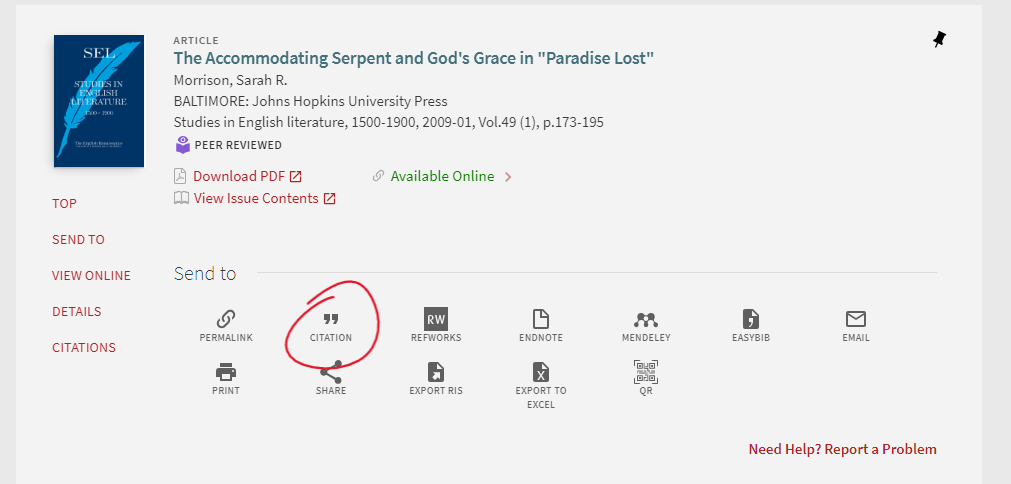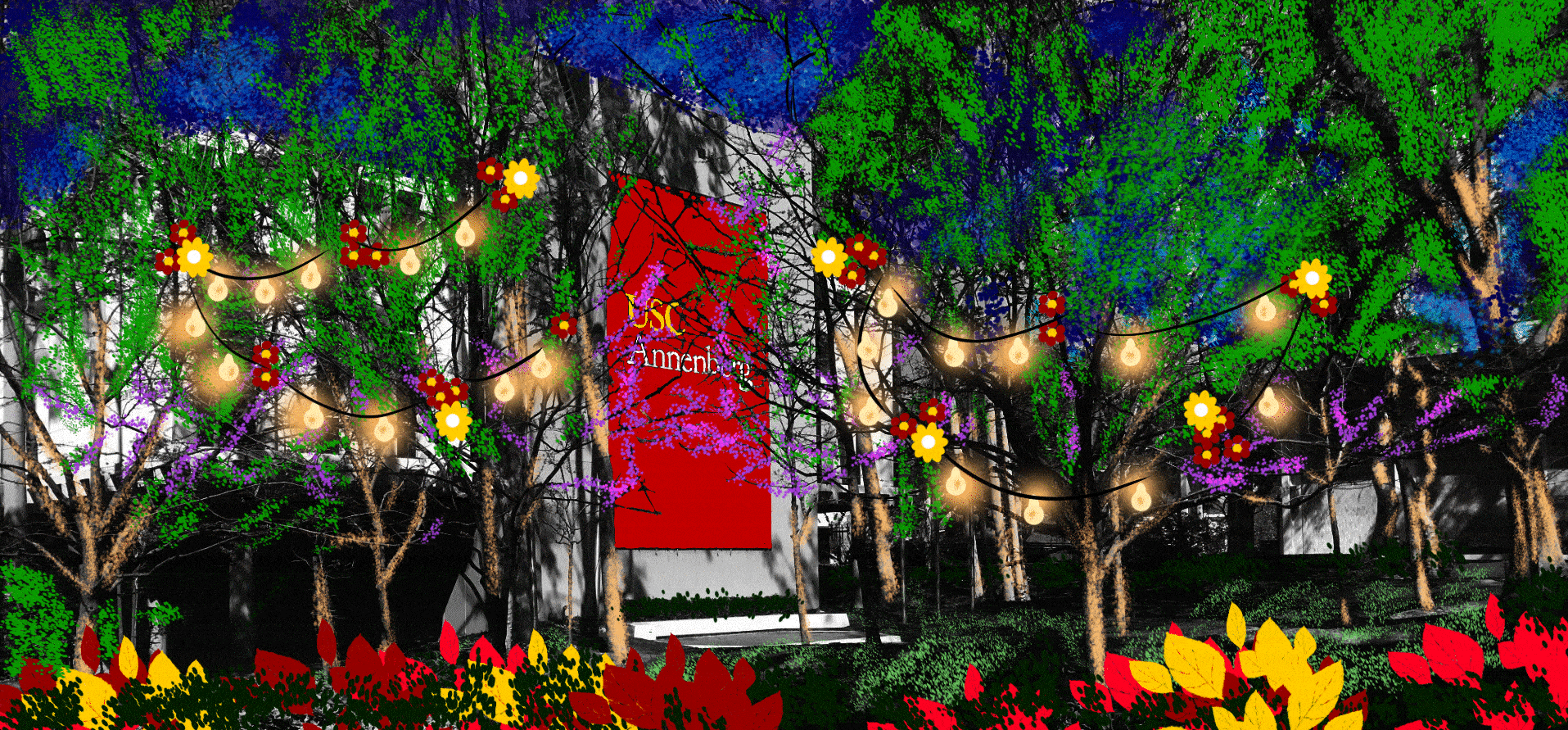It is a marvel of modern technology that so few things work well. A marvel made more all the more impressive by how many things work especially poorly–poorly even considering that most things don’t work. Printers don’t work; television remotes don’t work; Microsoft quietly installed some AI garbage on my computer last week and suggested I test it with the prompt, “I’m studying for a geometry test, can you quiz me?” I am thirty-six years old, Microsoft.
For the most part, citation generators don’t work either. Or, certain kinds of citation generators don’t work, and others work well if you do a lot of work first. The latter are just citation managers–things like Zotero or RefWorks. If you diligently clean and maintain your database of sources, those programs will work great. That’s not what I’m talking about.
The citation generators that I’m talking about–the ones that don’t work–are the ones that are easiest to find. And they are the ones that pop up when you are most likely in a hurry.
Example
Here is the article “The Accommodating Serpent and God’s Grace in Paradise Lost” (Morrison, 2009):

Here’s the template for a reference entry for a journal article in APA7:
Author, A. A., Author, B. B., & Author C. C. (DATE). Title of the article: Sentence case capitalization. Title of the Journal in Title Case Capitalization, Vol#(Iss#), pg-pg. DOI
And here’s what the reference entry would look like when we plug all the right information into that template:
Morrison, S. R. (2009). The accommodating serpent and God’s grace in Paradise Lost. Studies in English Literature, 1500-1900, 49(1), 173–195. https://doi.org/10.1353/sel.0.0048
This is what it looks like to find the article “The Accommodating Serpent and God’s Grace in Paradise Lost” (Morrison, 2009) in three different places: the USC library search page, Project Muse, and ProQuest.



In each example, you will notice that there is a link to automatically cite your find. Each one, when you click on it, asks you to choose what citation/reference format you are using (e.g. APA, Chicago, MLA, etc.). As of April 19, 2024, here’s what you get, and here’s what is wrong with them:
USC Libraries (APA 7th Edition)
Morrison, S. R. (2009). The Accommodating Serpent and God’s Grace in “Paradise Lost.” Studies in English Literature, 1500-1900, 49(1), 173–195. https://doi.org/10.1353/sel.0.0048
Problems: Title-case capitalization of the journal article instead of sentence-case capitalization. IMO, the quotes denoting Paradise Lost as a title within the title is no biggie, though.
Project Muse (APA 7th Edition)
Morrison, S.R. (2009). The Accommodating Serpent and God’s Grace in Paradise Lost. SEL Studies in English Literature 1500-1900 49(1), 173-195. https://doi.org/10.1353/sel.0.0048.
Problems: Title-case capitalization of the journal article instead of sentence-case capitalization. I don’t like the italics to denote Paradise Lost as a title within a title (at least not as much as I do the quotation marks in the first example). The journal title works as either “SEL Studies in English…” or just “Studies in English…” so I wouldn’t worry too much about that unless I was getting paid to. But there’s a period after the DOI–don’t need that.
ProQuest (APA 7th Edition)
Morrison, S. R. (2009). The Accommodating Serpent and God’s Grace in Paradise Lost. Studies in English Literature, 1500 – 1900, 49(1), 173-195. http://libproxy.usc.edu/login?url=https://www.proquest.com/scholarly-journals/accommodating-serpent-gods-grace-paradise-lost/docview/204342400/se-2
Problems: Title-case capitalization of the journal article instead of sentence-case capitalization. Also, it uses the database link instead of the DOI. There are times when you might use a database link (it is a pain), but that would only be when there’s something special about the piece as it exists in this particular database. That isn’t the case here.
So, none of these are right…
Correct. And that seems weird, right? I don’t actually know why this is, but I have a hunch. My sense is that these citation generators just draw from the databases that house the identifying information for journal articles (i.e. titles, authors, journal names, etc.) and that those databases aren’t really normalized very well. Like, the person who originally entered this kind of information for Journal A never talked to the person doing it for Journal B about how it should be done because why would they–they didn’t know that their work would have to talk to each other. But now all of these databases are sort of writhing together in some unholy union of paywalls and for-profit scholarship and this is what we get. But that doesn’t explain why the citation generator itself (whatever happens when you press the button) doesn’t account for that. Like, a title is just a string, and it doesn’t matter whether the string is all caps or some caps or all lower-case letters because you can just run some functions and export it however you need. It seems kinda trivial–or, at least, trivial enough that I shouldn’t be so certain it almost never works. Oh well.
So yeah, just to confirm: they are wrong.
But they’re pretty close and that might be good enough.
The thing that these quick and dirty citation generators are good for is just getting the information you need on the page.
Here’s an exercise to try:
- First, make a friend–this could take minutes to years. Cherish this step.
- Next, pick out a journal article.
- Get a stopwatch.
- When the time starts, you and your friend should each try to type out a full reference entry for that article. You do it by hand, no citation generator. Your friend should use a citation generator and then just edit the result so that it is correct.
I bet that, more often than not, your friend is going to win that race. Not by a ton, mind you–especially if you get good at doing your references by hand. But sometimes, your friend might also be able to find information that you cannot (for instance, if the DOI isn’t on the copy you printed out but it was in the example that the citation generator coughed up for your friend). But honestly, doing it either way is a good way to improve your APA editing skills, so it’s a wash. Just check your work.
Long story short: Citation generators almost never work. Do not trust them. But they’ll get you close, and that’s good enough if you’re willing to do a little clean-up.
